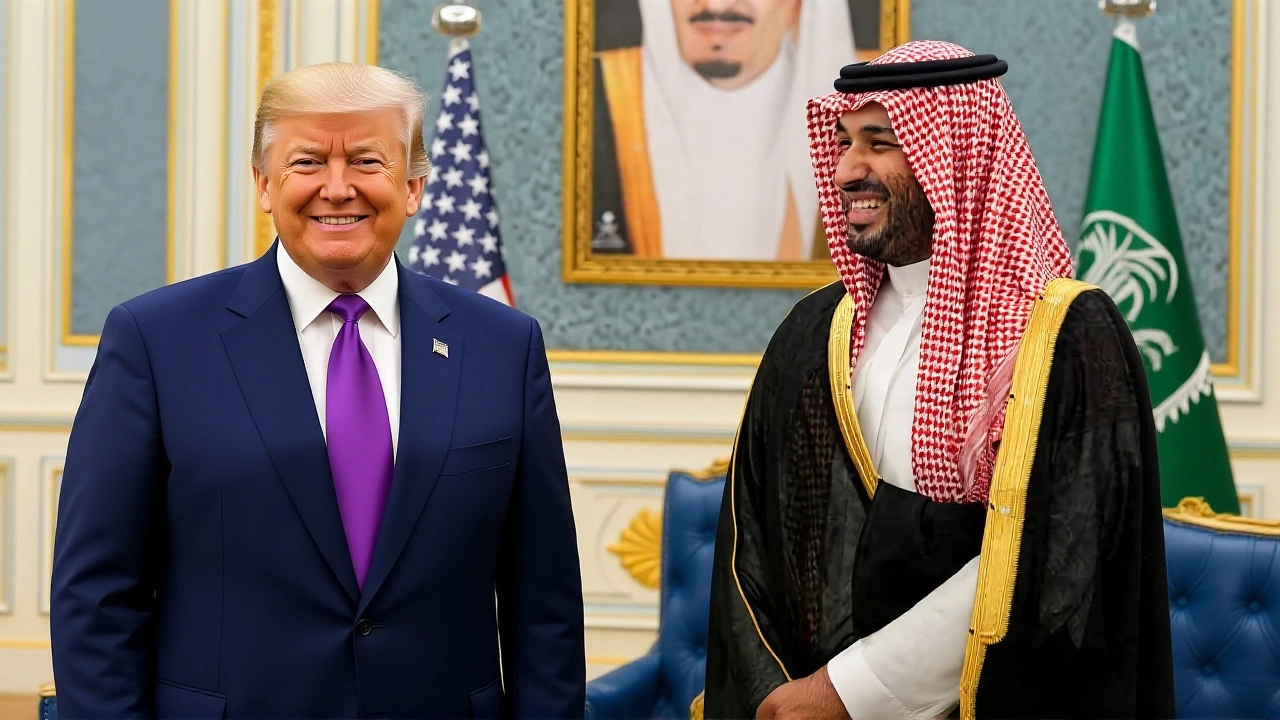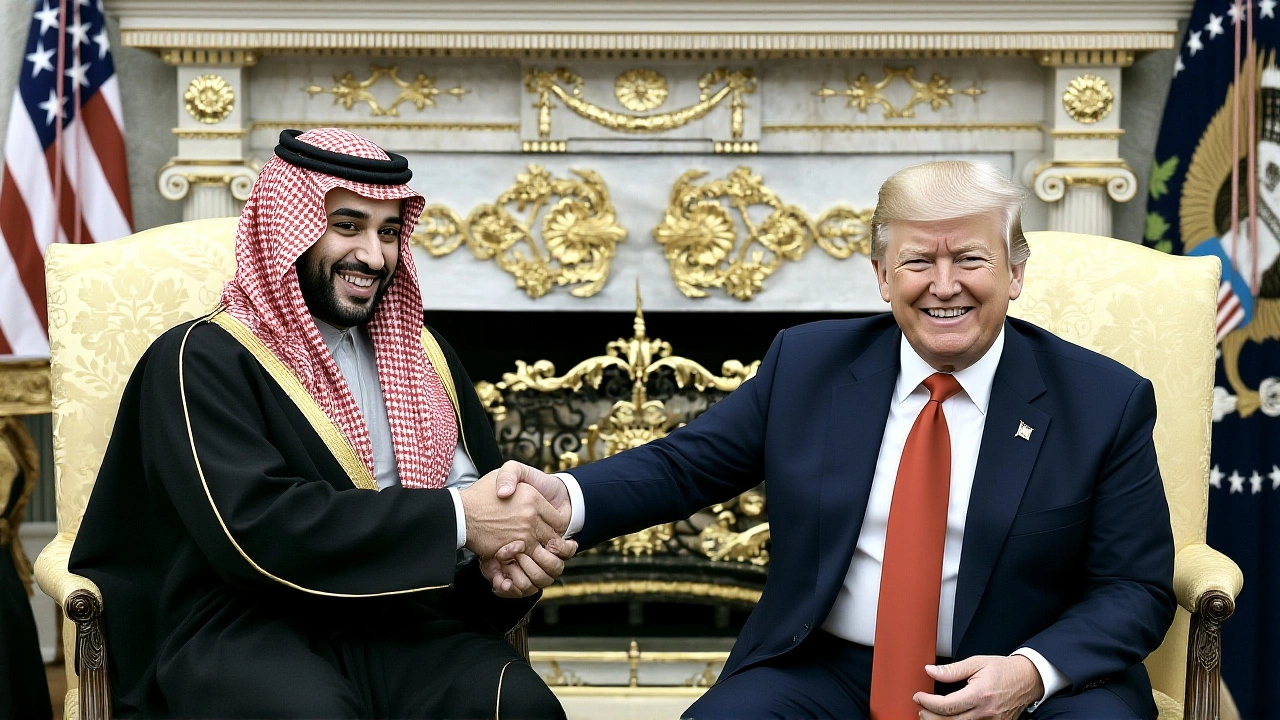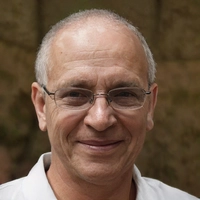When Donald J. Trump sat across from Mohammed bin Salman in the White House on November 18, 2025, he didn’t just offer hospitality—he offered exoneration. "He knew nothing about it," Trump declared, dismissing the U.S. intelligence community’s conclusion that the Saudi crown prince approved the brutal 2018 killing of Jamal Khashoggi, the Washington Post journalist whose disappearance inside the Saudi Consulate in Istanbul shocked the world. The moment, captured by Yamiche Alcindor of PBS NewsHour, wasn’t just awkward—it was a direct repudiation of America’s own intelligence agencies and a stark signal that accountability for Khashoggi’s murder remains politically negotiable.
"Things Happen"—A President’s Defense
Trump’s comments didn’t come out of nowhere. During the 20-minute meeting, Alcindor pressed him on whether it was appropriate to host the crown prince given the 2020 declassified report from the Office of the Director of National Intelligence, which concluded bin Salman had personally authorized the operation. Trump’s response was dismissive. "A lot of people didn’t like that gentleman," he said, gesturing toward Khashoggi’s memory. "Whether you like him or didn’t like him, things happen." He then turned to bin Salman, nodded, and added, "He knew nothing about it." He cut off further questions with a firm, "We can leave it at that. You don’t have to embarrass our guest." The language was deliberate. By framing Khashoggi as "controversial," Trump echoed the Saudi narrative that the journalist was a critic, not a victim. But Khashoggi wasn’t a radical—he was a moderate reformer who wrote columns calling for women’s rights and democratic reform in Saudi Arabia. His murder—by a 15-member Saudi hit squad that drugged, dismembered, and dissolved his body in acid—wasn’t a political dispute. It was state-sponsored assassination.The Intelligence That Was Ignored
The U.S. intelligence findings weren’t speculative. The CIA had intercepted communications between bin Salman’s aides discussing the operation. The NSA monitored the team’s travel to Turkey. The DNI’s 2021 report, signed by then-Director Avril Haines, stated with "high confidence" that the crown prince had approved the operation. That assessment was corroborated by Turkey’s own forensic evidence and international investigators from the UN. Yet here was Trump, the same president who in 2018 called the killing "terrible" but then said, "I don’t want to lose the Saudi deal," now publicly overriding that intelligence. His stance wasn’t just inconsistent—it was dangerous. It signals to authoritarian regimes that murder can be excused if the victim is inconvenient and the buyer is wealthy.Business Ties and the Trust That Wasn’t Blind
Trump insisted his company, The Trump Organization, had severed ties with Saudi Arabia. "We don’t deal with that country much," he told Alcindor. But records show his administration approved $2.2 billion in arms sales to Saudi Arabia during his 2017 Riyadh visit—and that foreign governments paid his properties over $28 million during his presidency, according to the Congressional Research Service. He claimed to have placed his assets in a revocable trust managed by his sons, Donald Trump Jr. and Eric Trump. But that’s not a blind trust—the kind used by every modern president before him, from Reagan to Obama. A revocable trust means he could still access funds, influence decisions, and benefit from deals. Critics call it theater. The Center for Public Integrity found at least seven foreign dignitaries stayed at Trump-owned hotels during his term, including Saudi officials.
A Crown Prince’s Words—And a World’s Silence
Bin Salman, for his part, spoke in halting English, saying: "Strong relation between America and Saudi Arabia... it’s critical against extremism and terrorism." He called Khashoggi’s death "painful," but offered no apology, no acknowledgment of responsibility. His words were carefully crafted to avoid accountability while seeking legitimacy. The European Parliament has already sanctioned him. The UN has called for an international tribunal. But in Washington, the message from the Oval Office was clear: geopolitics trumps justice.What Comes Next: The Courtroom and the Consequences
The legal battle isn’t over. On December 1, 2025, Hatice Cengiz, Khashoggi’s fiancée, will appear before the U.S. District Court for the District of Columbia in Khashoggi v. Saudi Arabia. She’s suing under the Alien Tort Statute, seeking accountability for torture and extrajudicial killing. The U.S. government has so far invoked state secrets doctrine to block discovery. Meanwhile, the Committee to Protect Journalists reports 381 journalists have been killed globally since 2018. Khashoggi’s case remains one of the most emblematic. His murder wasn’t an anomaly—it was a warning. And now, the president of the United States has chosen to ignore it.Frequently Asked Questions
How does Trump’s statement contradict official U.S. intelligence?
The 2020 declassified report from the Office of the Director of National Intelligence concluded with "high confidence" that Crown Prince Mohammed bin Salman approved the operation that killed Jamal Khashoggi. Trump’s claim that the prince "knew nothing" directly contradicts findings from the CIA, NSA, and DNI—all of which had intercepted communications and forensic evidence linking bin Salman to the planning and execution of the murder.
Why does the type of trust Trump used matter?
Trump placed his business interests in a revocable trust controlled by his sons, not a blind trust like past presidents. A revocable trust means he retains the right to access funds and influence decisions. That raises ethical concerns because it allows him to benefit from foreign deals—even if indirectly—while in office. Experts say this undermines the appearance of impartiality that blind trusts were designed to ensure.
What’s the significance of the December 1, 2025, court hearing?
The hearing in Khashoggi v. Saudi Arabia is the first time a U.S. court will directly address the role of Saudi leadership in the journalist’s murder. Hatice Cengiz is suing under the Alien Tort Statute, which allows foreign victims to seek justice in U.S. courts for human rights violations. If the court allows the case to proceed, it could set a precedent for holding foreign officials accountable in American courts.
How has the international community responded to Trump’s remarks?
The European Parliament passed a resolution in December 2021 calling for sanctions against Mohammed bin Salman over Khashoggi’s killing. Human Rights Watch and Amnesty International condemned Trump’s comments as enabling impunity. Even allies like Canada and Germany have quietly scaled back military cooperation with Saudi Arabia since 2018. Trump’s public defense of the crown prince risks isolating the U.S. from its democratic partners on human rights.
What’s the connection between Trump’s business and Saudi Arabia?
While Trump claims his company no longer does business with Saudi Arabia, records show $28 million in payments to Trump Organization properties from foreign governments during his presidency—including from Saudi officials. His Trump International Hotel in Washington D.C. saw a 44% revenue drop after 2016, but still hosted foreign dignitaries. The lack of a blind trust means financial conflicts remain possible, even if unproven.
Why does Khashoggi’s case still matter today?
Khashoggi’s murder became a global symbol of the dangers journalists face when challenging authoritarian power. Since 2018, over 380 journalists have been killed worldwide. His case tests whether powerful nations will prioritize diplomacy over human rights. If the U.S. president dismisses a proven assassination, it emboldens other regimes to silence dissent without fear of consequence.

